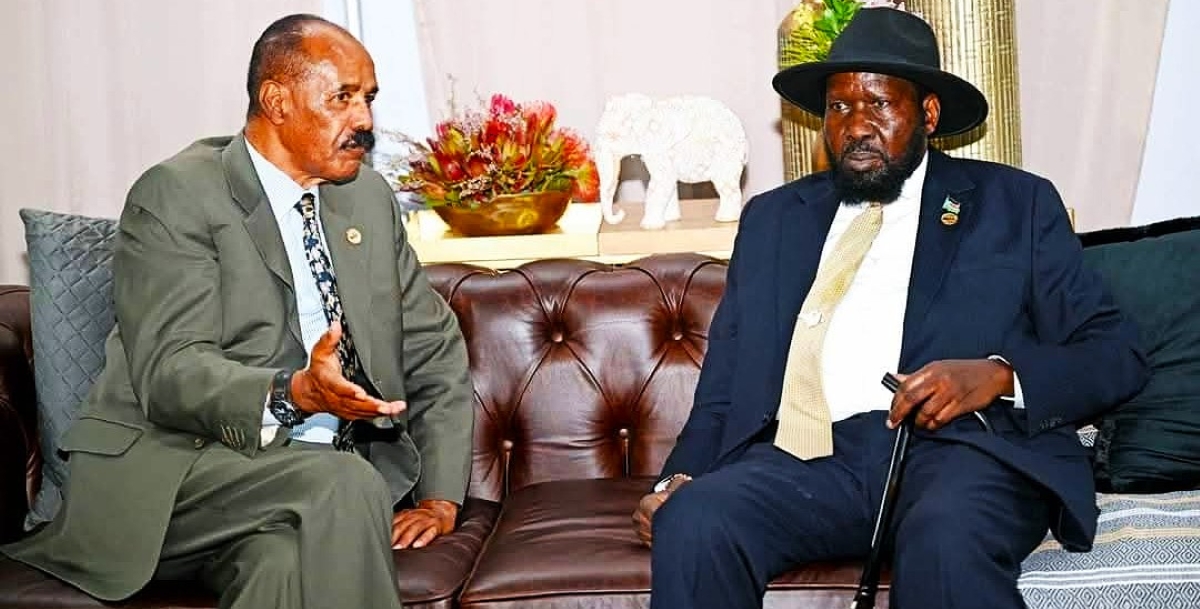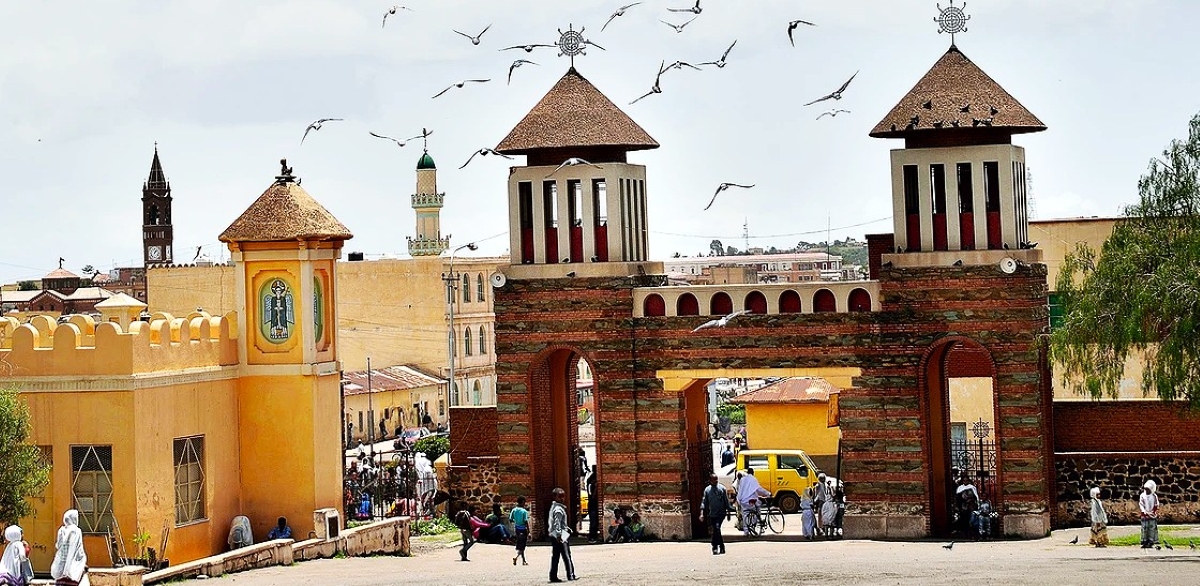The President of Eritrea, Isaias Afwerki has ignited international controversy with a series of decisive actions aimed at consolidating national control and asserting sovereignty.
In a sweeping move, the president has banned all opposition parties, rejected relief food from the United States.
Asmara reportedly also expelled U.S. Marine Corps General Michael Langley, commander of U.S. Africa Command (AFRICOM), along with others, being accused of meddling in Eritrea’s internal affairs.
These developments have thrust the Horn of Africa nation into the global spotlight, sparking debates over sovereignty, security, and foreign influence in African governance.
Deleting Opposition Parties
President Afwerki, who has led Eritrea since its independence from Ethiopia in 1993, announced the immediate prohibition of all opposition political parties, labelling them as conduits for foreign interference.

The government claims that Western powers, particularly the United States, have been funding and manipulating opposition groups to destabilize Eritrea and exploit its strategic Red Sea mineral resources.
“Eritrea is not for sale,” Afwerki declared in a televised address, emphasizing that the ban is necessary to safeguard national stability and unity.
This move formalizes Eritrea’s long-standing one-party system under the People’s Front for Democracy and Justice (PFDJ), the sole legal political entity.
Critics, including exiled opposition leaders, have condemned the ban as a further erosion of democratic freedoms in a country already ranked last in the 2024 Press Freedom Index by Reporters without Borders.
The government’s history of suppressing dissent, including the 2001 arrest of 11 senior officials who criticized Afwerki’s leadership, underscores the challenges faced by political opposition within Eritrea.
Rejection of U.S. Food Aid
In a defiant stance against international humanitarian narratives, Afwerki rejected relief food from the United States, dismissing reports of a hunger crisis in Eritrea as “fabrications” designed to undermine the nation’s self-reliance.
The president has long criticized foreign aid as a tool of neo-colonial control, arguing that it cripples African economies by fostering dependency. “We are fed better than anyone,” Afwerki stated, echoing his 2007 remarks when he claimed Eritrea’s agricultural policies would soon yield surpluses.
This rejection comes despite a 2009 UN Food and Agriculture Organization report estimating that two-thirds of Eritreans suffered from malnutrition, though the government has consistently barred independent assessments of food security.
Observers note that Eritrea’s insistence on self-sufficiency, while ideologically driven, risks exacerbating economic hardships in a nation where two-thirds of the population lives below the poverty line.
Expulsion of the United States General
President Afwerki reportedly ordered the expulsion of General Michael Langley and other individuals accused of interfering in Eritrea’s domestic affairs.
While the Eritrean government has not officially confirmed Langley’s expulsion, sources indicate that the move stems from Asmara’s belief that the U.S. is leveraging military and diplomatic presence to influence Eritrean politics.
Langley, the first Black four-star Marine Corps general and AFRICOM commander since 2022, has been a prominent figure in U.S. efforts to counter Chinese and Russian influence in Africa.
The expulsions align with Afwerki’s broader rejection of Western engagement, including his 2015 decision to expel Non-Government Organizations from America and his refusal to attend the United States-Africa summit under the former Biden administration.
Eritrea’s alignment with Russia and China, evidenced by Afwerki’s support for Russia’s actions in Ukraine and agreements to develop Red Sea ports, further complicates its relations with the West.
Global Reactions and Implications
The international community has reacted with a mix of concern and criticism.
The U.S. State Department expressed “deep concern” over the opposition ban and expulsions, urging Eritrea to respect political freedoms and engage constructively with international partners.
The African Union and European Union have both called for dialogue, though their influence over Eritrea remains limited due to Asmara’s withdrawal from regional bodies like the Intergovernmental Authority on Development (IGAD).
Mixed reactions
Within Africa, Afwerki’s actions have sparked polarized sentiments.
Some praise Eritrea’s defiance as a bold assertion of sovereignty against Western neo-colonialism, with supporters citing the country’s refusal to bow to external pressure.
Others warn that the moves deepen Eritrea’s isolation, potentially worsening economic stagnation and human rights conditions, which the UN has described as possible “crimes against humanity.”
Eritrea’s strategic location along the Red Sea, coupled with its mineral wealth, makes these developments significant for regional security and global geopolitics.
Analysts suggest that Afwerki’s alignment with Russia and China could escalate tensions with the U.S., particularly as competition for influence in the Horn of Africa intensifies. Meanwhile, the ban on opposition parties raises fears of increased repression, with reports of heightened security measures in Asmara.
A Nation at a Crossroads
As Eritrea navigates these turbulent waters, President Afwerki’s actions underscore his unwavering commitment to centralized control and self-reliance, rooted in his revolutionary past as a leader of the Eritrean People’s Liberation Front.
However, with no constitution, parliament, or elections since independence, and a history of silencing dissent, the path forward remains fraught.
For Eritreans, both at home and in the diaspora, the president’s bold stance is a double-edged sword: a symbol of resistance to foreign influence, but also a barrier to political pluralism and economic recovery.
As global attention intensifies, the world watches to see whether Afwerki’s gambit will solidify Eritrea’s sovereignty or deepen its isolation on the international stage.

